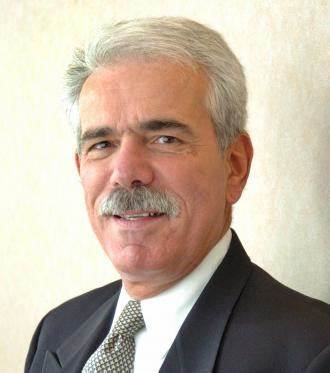The following opinion was written by attorney Joseph Faraldo.

Speaking solely as a private attorney and a horsemen , not in any other capacity and not for any entity, I found the recently filed complaint in the United States District Court for the Northern District of New York, in the matter captioned Kapildeo Singh, et al Vs American Racing Tioga Downs Inc,, et al., very, very interesting. The answer to this complaint will join the issues on both sides but for now this is what there is.
There are eight owners who brought this suit against 4 separately recognized legal entities alleging a Conspiracy in Restraint of trade ( violations of the Sherman Anti Trust Act, its modifications and NYS’s Anti Trust Law) amongst other allegations. The other defendants are American Racing Vernon Downs Inc, New Meadowlands LLC and Jeffrey Gural.
The Federal and State Law allegations prohibit combinations in restraint of trade and are supplemented with claims of interference with contractual obligations that the named plaintiffs had with a number of other owners and trainers.
It is alleged, the plaintiffs were forced to liquidate their share of all the horses that these owners had invested in, that would have been eligible to compete against one of the named defendants or at any of those separately named three tracks. The March edict was applied to all of the plaintiffs whose names appeared as owners on any horses, wherever and in whoever’s care they were even reaching beyond the indicted trainer who had their non racing babies in training in Florida. It effected any horse owned in whole or in part by any of these eight and barred them from competing in overnights or stakes races held at the Meadowlands, and to a lesser degree, Vernon and Tioga.
The sales, of the named plaintiffs’ percentages of horses owned, were thereby forced, according to the suit, if those horses were to have any value to anyone. Whether the sales were to partners or third parties, everyone knew, that if one of the plaintiffs remained in ownership, the value of the horse was diminished because the horse was made ineligible to race at any of the three tracks. So the allegation was of substantial damage.
The suit alleges that the reason the named owners, bringing the suit, were forced to liquidate their interest in their horses was because they in the past had utilized the services of a trainer in training babies with a trainer in Florida, the subject of a pending indictment – not yet adjudicated. The edict banned participation at those three tracks beyond that was extended to any horse or horses the plaintiffs owned in whole or in part even with any other trainers, none of which was the subject of any similar allegations made against this one trainer. The suit goes on to claim that others in identical situations were treated differently and the March edict was not applied to them.
As indicated the owners in the suit, were informed that they were prohibited from racing any horses, even those not trained by the indicted trainer, some of whom made stakes payments made to third party owners or administrators of those stakes. Those payments it is alleged, were made on horses which were being trained by other trainers, all in good standing and clearly not beards. Those trainers were, and are, obviously not the subject of even a hint of any wrongdoing and enjoy good reputations.
According to the lead plaintiff, Kapildeo Singh, he was forced to sell his shares in horses he had like Easy Rider, Pub Crawl & Sisters Choice amongst others. The same for horses owned by the other plaintiffs, like Lindy the Great, Western Fame, Je Suis Si Belle, and LDees Reward . The losses to these owners , it is alleged, harmed them and in some instances severed their relationships with other trainers, accused of no wrongdoing, who lost those owners.
The genesis of all of this was that these owners utilized the indicted trainer to train their young horses in Florida, an activity reportedly permitted under the Federal government’s bail conditions applied to that trainer.
It is alleged that because Singh, and the other plaintiffs, owned any horses, had to sell their shares for well below the market value of those horses because the horses could not compete as a result of the plaintiffs’ interest in them. It was irrelevant that they were with trainers with no connection to any indicted individual.
It is further alleged in this lawsuit that the removal of these horses from competition served no competitive purpose and may have benefitted the individual named as a defendant. So in order as not to deprive others including their partners of the ability to race these horses, the allegation is that the plaintiffs were forced to sell out, so their partners would not suffer.
One would think that the named plaintiffs may have tried every means to negotiate a settlement especially knowing the deep ramifications that the March edict had on them while they sought to learn why this did not apply to others who were exempted from the ban. The law suit may have resulted, as oft times does, when negotiations fail.
All four defendants are now alleged to have entered in a conspiracy in restraint of trade serving no competitive purpose and with interfering with the contractual relationships of the named plaintiffs.
The case raises interesting questions that have been raised before but have never been fully litigated. It involves interesting questions of equine law intertwined with anti trust ramifications. The penalties, for a successfully litigated case such as this are quite hefty, as anti trust cases carry a wide variety of penalties including punitive damages.
In earlier days tracks were quite concerned about these laws and were very conscientious and diligent so as not to do anything to invite such suits. It does not appear that any other tracks have joined in the edict.
The path this case follows will be interesting to lawyers and important for all the participants in the industry however it is adjudicated. Punishing owners as a means of reform needs more than a knee jerk reaction and should apply when owners participate in wrongdoing. We’ll see how it all shakes out as it will get an impartial review and all sides will be heard. All practicing equine attorneys will learn a lot from the outcome of this case if it goes to trial.
From Joseph Faraldo, esquire

 USA
USA Canada
Canada Australia
Australia New Zealand
New Zealand Europe
Europe UK / IRE
UK / IRE


